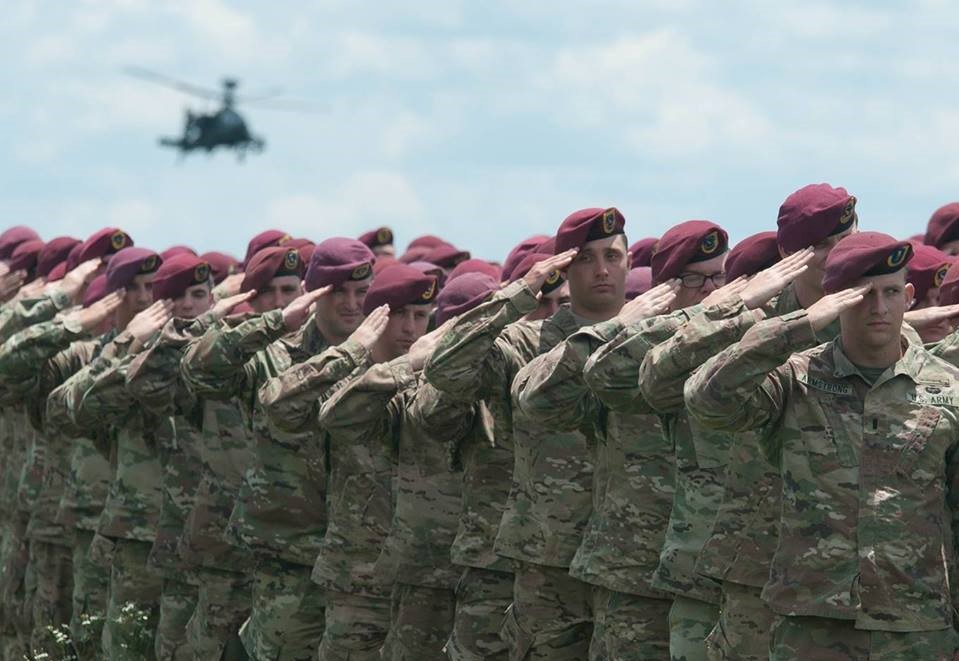19 July 2021
6 Reasons Why FBRI is Located at Fort Bragg, NC
The Fort Bragg Research Institute (FBRI) is solely dedicated to research supporting the capability of the U.S. warfighter in areas including human performance, sustainment, traumatic brain injury (TBI), and the needs of the female warfighter. FBRI was formed in 2018 as a collaborative effort between The Geneva Foundation (Geneva), Womack Army Medical Center (WAMC), and Fort Bragg to link the infrastructure of science and technology regionally available to WAMC and the increasing needs of operational readiness at Fort Bragg.
With Geneva at its side, FBRI manages complex programs that involve human performance. FBRI serves as a partner alongside researchers, their teams, and collaborators ensuring commanders of some of the most elite military units in the world receive the knowledge and technical products they need. Therefore, it was with much intention that the FBRI was established and located at Fort Bragg in North Carolina.

Here are six reasons why Geneva is proud to call Fort Bragg, North Carolina home to the FBRI.
1. Home to the Nation’s world-class fighting forces
Fort Bragg is one of the largest military installations in the world, with over 545,000 active-duty soldiers, 70,000 of their family members, 20,000+ civilian employees and contractors, and the most elite forces in the world.
Fort Bragg’s mission is to “equip, train, rapidly deploy, and sustain full spectrum forces supporting combatant commanders from a community of excellence where Soldiers, families, and civilians thrive.” The base is home to the Army’s 82nd Airborne Division, Special Operations Command and Special Forces, the U.S. Army Parachute Team, and the Air Force Combat Control School. The U.S. Army John F. Kennedy Special Warfare Center and School, a new 90,000 square foot human performance facility, is also located on Fort Bragg.
FBRI seeks to optimize military human performance by ensuring that the needs, gaps, and requirements of these special units are vigorously and comprehensively addressed by the scientific community.
2. Surrounded by top-notch research institutions and companies
Not only is Fort Bragg home to some of the most well-known military units in the world, it is also located near notable academic, scientific, and medical research institutions. This region in North Carolina is referred to as the ‘Research Triangle’ that encompasses three major research universities: North Carolina State University, Duke University, and University of North Carolina at Chapel Hill. It is also an area with some of the fastest-growing life science organizations in the world — more than 500 life science companies operate there. The Triangle supports a fertile economic and academic climate that is also home to pharmaceutical companies including Pfizer, Merck, and Lilly, and research partners including North Carolina Biotechnology Center and RTI International.
FBRI and Geneva have experience partnering with large and small businesses, industry leaders, academic institutions, and the federal government. With over 25 years of experience in delivering full-spectrum scientific, technical, and program management expertise, Geneva’s unique capabilities catalyze scientific and technical innovation through these partnerships.
3. Focused human performance and operational medicine efforts
U.S. service members need to be mentally and physically fit, continuously trained, and resilient to defend our nation, and Fort Bragg provides the support to meet the mission of the current and future operational requirements of the Department of Defense. Through partnerships, Geneva is able to synchronize military medical research for optimal warfighter readiness.
FBRI has been instrumental in the creation of a North Carolina-wide state version of FBRI, now known as the North Carolina Center for Optimizing Military Performance (NC-COMP). As a founding member, along with other members including RTI-International, University of North Carolina system, the North Carolina Biotechnology Center, FBRI has helped establish a state-wide collaboration, bringing the very best of North Carolina’s science and technology organizations together to meet the ever-changing needs our warfighters. The launch of NC-COMP comes in the wake of a study conducted last year which found North Carolina is among the fastest-growing states in the nation for critical DoD technology areas including human performance.
Fort Bragg supports its soldiers by providing them with preventative healthcare to ensure optimal preparedness. The Soldier Readiness Center, a readiness resource provided by WAMC, provides medical and dental processing such as pre-/post-deployment health services, annual medical readiness checks, hearing, vision, and immunizations for military and civilian personnel. Operation Reserve Care, a new initiative at Fort Bragg, gives soldiers the opportunity to maintain their health and readiness. This program aims to decrease the time soldiers miss from their civilian jobs while increasing their readiness so they can be ready to deploy at any time.
4. Distinguished leaders and inspiring researchers
FBRI is led by Executive Director LTC (Ret.) Stephen M. DeLellis, PA-C, a decorated military veteran serving more than 35 years in the U.S. Army. LTC (Ret.) DeLellis’s medical career has been dedicated to understanding the effects of TBI in service members and veterans and advancing medical care for wounded service members from the point of injury to care within the largest military treatment facilities. He is well-suited to lead FBRI having worked in conjunction with WAMC and several universities to help develop one of the most comprehensive neurocognitive baseline and post-injury assessment programs in the DoD.
WAMC at Fort Bragg attracts renowned researchers studying human performance like Geneva employee and rehabilitative medicine researcher Army Col. (Ret.) Don Goss, DPT, PhD, ATC. Dr. Goss is researching direct access physical therapy sick calls for soldiers at Fort Bragg. Dr. Goss recently tied for second place in podium presentations for his original research at the WAMC Research Symposium.
5. Thriving military research collaborations
FBRI supports local, regional, and state medical research-related conferences, symposia, and colloquia. In 2021, we helped found the NC-COMP consortium and sponsored the Medical, Biomedical and Biodefense: Support to the Warfighter Symposium 29-30 Sept 2021 in Chapel Hill. This year, FBRI will be hosting the session “Fort Bragg Research Institute Update and Future Requirements for Tactical Medicine.”
FBRI is dedicated to the region and frequently attends events geared towards medical research, life sciences, biotech, and military medicine.
6. Military spending has a big impact on North Carolina
North Carolina is also home to Camp Lejeune which is the largest Marine Corps base on the East coast, Seymour Johnson Air Force Base, a Coast Guard air station, and the DoD has its main ammunition shipping terminal there. The military not only takes up a lot of geography, but its economic footprint is large too — making up nearly 13% of North Carolina’s gross state product. In 2020, businesses in 83 counties were awarded $6.1 billion in prime contracts.
The state is looking at a few ways to expand the military’s economic importance including positioning North Carolina as a high-tech state and boosting the production of products the military buys. FBRI is proud to be a part of this economic expansion.
FBRI is strategically well-positioned to work with the most remarkable military units, institutions, companies, organizations, leaders, and researchers in the world and that is right in the heart of it all at Fort Bragg, North Carolina. Learn more about FBRI, our participation in the NC-COMP consortium, and potential partnerships at https://genevausa.org/programs/flri.
Disclaimer: The views expressed do not reflect the official policy of the Army, the Department of Defense, or the U.S. Government.




